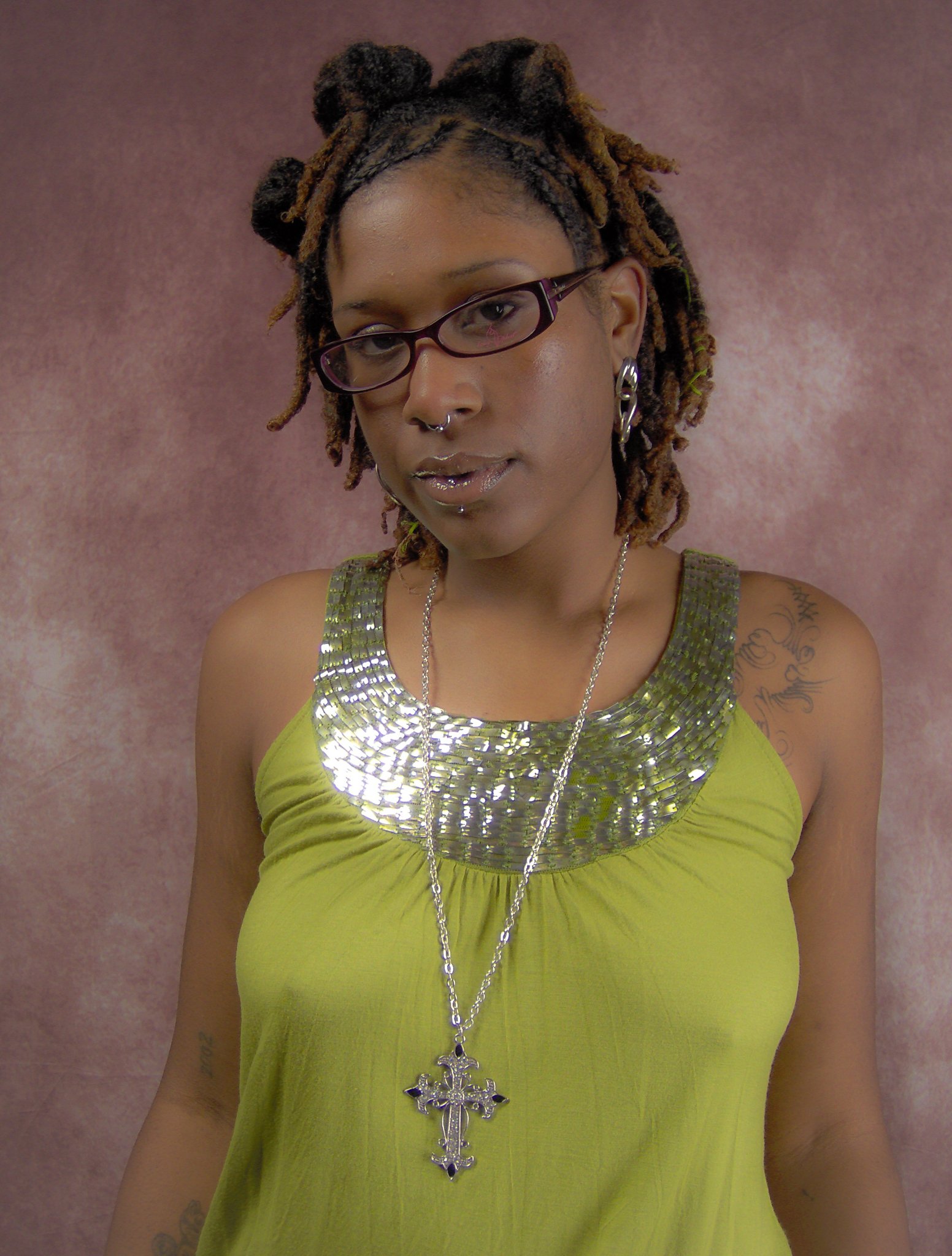
Introducing
Meliana Julien
Artist Profile of Photographer Meliana Julien
In the text “Blackfishing on Instagram: Influencing and the Commodification of Black Urban Aesthetics”, researcher Wesley E. Stevens speaks to the co-opting of Black imagery in the pursuit of capital. New age ‘creatives,’ global marketing machines and aspiring Instagram models are all keen to indulge in “urban aesthetics (...) while obscuring the more racially charged aspects of Black existence, drawing boundaries around which depictions of Blackness are desirable, and thus, profitable.”¹ Blackness, while endlessly lucrative, can only be so once scrubbed clean of anything that risks humanizing Black people. Rendered shallow and disposable, Black experience is commodified into an accessory "able to be adorned and shed at a whim”.²
Wading through this sea of endless digital Blackfishing, to stumble across the work of Haitian-American photographer Meliana Julien feels like a deep exhale. Julien, whose work and creative life live largely online, is radical through her authenticity. For her, Black aesthetics are captured moment to moment–a life lived.
“Julien has already created a distinct visual identity informed by lived experience and firmly rooted in Black femme aesthetics.”
Julien is an artist who points her lens towards the mundane. Armed with an iPhone and a digital camera, she facilitates a dialog between past and present, subject and viewer, forcing us to take a second look at the everyday. Self-taught and only a year into her practice, Julien has already created a distinct visual identity informed by lived experience and firmly rooted in Black femme aesthetics.
The world she is building through her photography feels like a memory and a glance into the future all at once. A collective desire to fall away from our burning present has given rise to cheap tools that romanticize an imagined past (Edison bulbs, Instax polaroids, Urban Outfitter record players) but Julien avoids the pitfalls of mimicry. As fashion writer and cultural critic Rian Phin notes, Julien doesn’t succumb to “clichés of aesthetic signaling (...) the work is nostalgic and familiar without looking outdated”.³
Social media, now almost exclusively an arena for (self) promotion, is a catalog of carefully manicured personas. Julien remembers a different time. She talks about what it was like to scroll through the Facebook accounts of her parents where, before virality became a commercial tool, every image was earnest, blurry, grainy, and organic. Here, she saw the lives of her community documented. Birthdays, cookouts, church fits, hair cuts, nights out, card games, etc. The preservation of Black life through the vantage of those living it. Through her own lens, Julien is continuing this legacy of archiving the tones and textures of Blackness.
In Nails by Mari, Wig Head 1, Angel’s Front Door and Ruqiya, fabrics of Black femininity are embodied. Her work channels the sincerity and allure of her subjects and suspends them in time. Phin talks of how Julien is particularly skilled at communicating the “beauty of excess and detail.”⁴ Here, girlhood and Black femme politics are communicated through the adorning of oneself from treasures gathered at the beauty supply. You recognize the girls in these pictures. You’ve seen these nails and the mannequins sat next to packs of Xpressions but captured through Julien’s eye you’re given the chance to see again, and to see more.
Though her images are steeped in nostalgia, Julien’s point of view is distinctly Gen Z. The journey from child to adult is, for her, demarcated by junctures in digital life. Migrations from Flickr to Facebook to Tumblr to Twitter then to whatever is next. The internet remains integral to her work. Coming of age and discovering her craft in the midst of pandemic isolation, Julien found community on what she calls “mood board Twitter”. It's here, in niche corners of the internet, where she sharpened her eye and where she now exhibits her work. The internet, for all its defects, has also proven to be a space for a new, democratized kind of public art.
With her digital footprint, Julien provokes a celebration of the still and soft pockets of Black life. She is clear in her priorities:
“My goal is that Black people can see themselves in my photographs. Black aesthetics are too beautiful to be put aside.”
“Through her own lens, Julien is continuing this legacy of archiving the tones and textures of Blackness.”
Wesley E. Stevens, “Blackfishing on Instagram: Influencing and the Commodification of Black Urban Aesthetics,” Social Media + Society 7, no. 3 (2021): 2
Ibid., 9
Phin, Rian (@thatadult). "Why I Love Photos by Meliana Julien." Instagram, April 17, 2023. https://www.instagram.com/reel/CrJRDPzrQ1Y/?hl=en
Ibid
